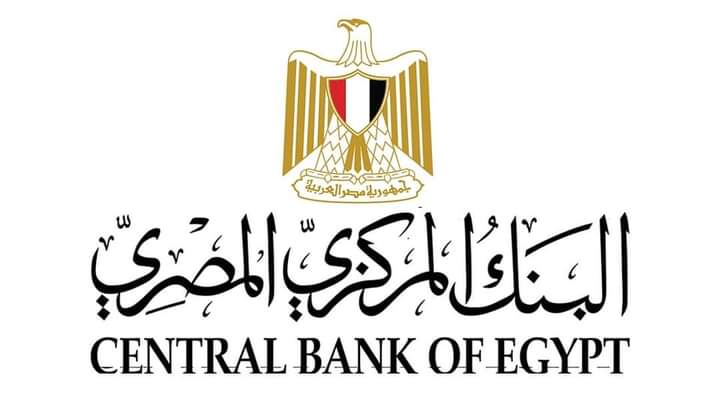في ضوء الدور الريادي لجمهورية مصر العربية، وعلى وجه الخصوص البنك المركزي المصري، على المستويين الإقليمي والدولي في تعزيز الشمول المالي ومكافحة غسل الأموال وتمويل الإرهاب، أدرجت مجموعة العمل المالي The Financial Action Task Force (FATF) في دليلها الإرشادي المُحدّث الصادر في يونيو 2025، التجربة المصرية ضمن أفضل الممارسات الدولية في تحقيق التوازن بين تعزيز الشمول المالي والالتزام بمعايير مكافحة غسل الأموال وتمويل الإرهاب.
وتعد FATF منظمة دولية مقرها العاصمة الفرنسية باريس، تأسست عام 1989، وتضم 40 عضوًا، وتقوم بوضع معايير دولية لمكافحة غسل الأموال وتمويل الإرهاب وانتشار التسلح لضمان قدرة السلطات الوطنية على التصدي للأموال غير المشروعة المرتبطة بجرائم خطيرة مثل الإتجار غير المشروع في المخدرات والأسلحة، وجرائم النصب والاحتيال بما فيها استخدام الوسائل الإلكترونية، وجرائم الفساد.
وأشاد الدليل الإرشادي بالجهود المصرية بقيادة البنك المركزي المصري، بالتعاون مع وحدة مكافحة غسل الأموال وتمويل الإرهاب المصرية والتي كان لها دورًا محوريًا في تصميم وتنفيذ الإجراءات التي ضمنت تحقيق التوازن بين الالتزام بالمعايير الدولية وتعزيز الشمول المالي من خلال ما تتمتع به من صلاحيات تنظيمية ورقابية متكاملة، في بناء إطار تنظيمي متكامل وفعّال يُسهم في ضمان الوصول العادل والآمن للخدمات المالية ويسهم في تمكين جميع فئات المجتمع اقتصاديًا، وذلك من خلال إصدار لوائح تنظيمية ومبادرات تدعم الشمول المالي مع الحفاظ على الاستقرار المالي وحماية حقوق العملاء.
وبهذه المناسبة، صرح السيد / حسن عبد الله محافظ البنك المركزي المصري، بأن هذه الإشادة الدولية تُعد تأكيدًا على التزام مصر برؤية استراتيجية وطنية طموحة تحقق التوازن بين حماية النظام المالي وتمكين مختلف فئات المجتمع من الوصول إلى الخدمات المالية الرسمية، كما تعكس حجم الإنجاز الذي تحقق على أرض الواقع نتيجة ثمرة الجهود الكبيرة التي بذلتها قطاعات البنك المركزي المصري، ووحدة مكافحة غسل الأموال وتمويل الإرهاب بالتعاون مع الجهات المعنية بالدولة، لتعزيز دور مصر الريادي في هذا الشأن.
وشدد سيادته على أن البنك المركزي المصري سيواصل العمل على تعزيز هذا النهج المتكامل الذي يواكب أفضل الممارسات الدولية، لدعم النمو الاقتصادي، وترسيخ الشمول المالي كمحور رئيسي للتنمية الاقتصادية الشاملة.
هذا وقد سلط الدليل الضوء على أبرز الإجراءات التنظيمية التي اتخذها البنك المركزي المصري لتعزيز الشمول المالي بالتنسيق مع وحدة مكافحة غسل الأموال وتمويل الإرهاب، ومن أهمها تطبيق إجراءات مبسطة للتعرف على هوية العملاء، للأفراد والمشروعات متناهية الصغر، وتسهيل فتح الحسابات المصرفية للشباب من سن 15 عاما والحرفيين وأصحاب الأعمال الحرة ببطاقة الرقم القومي فقط، والسماح للوكلاء المصرفيين من التحقق من هوية العملاء للتوسع في تقديم الخدمات المالية، فضلًا عن تطوير منتجات مالية مخصصة لمختلف فئات المجتمع مثل النساء والشباب وذوي الهمم.
كما أشار الدليل إلى جهود البنك المركزي المصري في تعزيز الشمول المالي الرقمي من خلال تطوير البنية التحتية المالية ودعم استخدام المحافظ الإلكترونية وبطاقات الدفع المسبق، إلى جانب إصدار ضوابط ترخيص وتسجيل البنوك الرقمية، بما يُمَكن المؤسسات من تقديم الخدمات المصرفية عبر المنصات والقنوات الرقمية، وتوسيع نطاق الوصول للخدمات في المناطق النائية.
إلى جانب ذلك، فقد قام البنك المركزي المصري بتطوير دور شركة الاستعلام الائتماني (I-Score)، وتعزيز دور شركة ضمان مخاطر الائتمان لتيسير حصول المشروعات الصغيرة والمتوسطة على التمويل.
وتجدر الإشارة إلى أن الدليل الإرشادي لمجموعة العمل المالي” FATF” الخاص بالتدابير المرتبطة بمكافحة غسل الأموال وتمويل الإرهاب وتعزيز الشمول المالي تم إعداده بالتشاور مع عدد واسع من الجهات الدولية، من بينها البنك المركزي المصري ووحدة مكافحة غسل الأموال وتمويل الإرهاب، بما يعد تأكيدًا على الدور القيادي لمصر في هذا المجال، ويهدف إلى تشجيع الدول على تعزيز الشمول المالي وتطبيق نهج قائم على المخاطر بشكل متناسب.
In recognition of Egypt’s pioneering role — primarily led by the Central Bank of Egypt (CBE) — at the regional and international levels in promoting financial inclusion and combating money laundering and terrorist financing, the Financial Action Task Force (FATF) has included Egypt’s experience among the international best practices highlighted in its updated “Guidance on Financial Inclusion and Anti-Money Laundering and Terrorist Financing Measures,” released in June 2025. The Guidance highlights Egypt’s success in achieving a balance between promoting financial inclusion and adhering to anti-money laundering and counter-terrorist financing (AML/CFT) standards.
The FATF is a global organization established in 1989, headquartered in Paris, and composed of a 40-member body. The FATF sets international standards to combat money laundering, terrorist financing, and the financing of the proliferation of weapons to ensure that national authorities can address illicit funds linked to serious crimes, such as illicit drug trafficking, weapons trafficking, swindling and fraud crimes — including the use of electronic means — and corruption crimes.
The report commended Egypt’s efforts, led by the CBE, in collaboration with the Egyptian AML/CFT unit, which plays a pivotal role in designing and implementing measures that ensure achieving a balance between compliance with international standards and advancing financial inclusion, through its comprehensive regulatory and supervisory mandates. This has contributed in building a cohesive and robust regulatory framework that ensures equitable and secure access to financial services while contributing to the economic empowerment of all segments of society. These achievements stem from the issuance of regulations and initiatives that promote financial inclusion while maintaining financial stability and protecting customer rights.
On this occasion, H.E. Mr. Hassan Abdalla, Governor of the CBE, stated that this international recognition reaffirms Egypt’s commitment to the national strategic vision. This strategy strikes a balance between safeguarding the financial system and empowering various segments of society to access formal financial services. Mr. Abdalla added that this milestone reflects the substantial progress achieved through the collaborative efforts of the CBE’s sectors, the Egyptian AML/CFT unit, and other relevant state bodies, solidifying Egypt’s leadership in this field.
Mr. Abdalla further emphasized that the CBE will continue to advance this comprehensive approach, aligning with international best practices to foster economic growth and consolidate financial inclusion as a key pillar of inclusive economic development.
The FATF Guidance spotlighted the most prominent regulatory measures adopted by the CBE to promote financial inclusion in collaboration with the Egyptian AML/CFT unit. These key measures include the implementation of simplified customer due diligence procedures for individuals and micro-enterprises; facilitating bank account opening for youth (from 15 years old), craftsmen, and freelancers using only their national IDs; and allowing banking agents to verify customer identities to extend financial services reach. Additionally, the CBE has developed tailored financial products for different segments of society, such as women, youth, and persons with disabilities.
The report recognized the efforts of the CBE in advancing digital financial inclusion by enhancing financial infrastructure and supporting the use of e-wallets and prepaid cards. Moreover, the CBE has issued licensing and registering regulatory frameworks for digital banks, enabling institutions to deliver banking services via digital platforms and channels, extending access to financial services in remote areas.
Furthermore, the CBE has elevated the role of the Egyptian Credit Bureau (I-Score) and strengthened the Credit Risk Guarantee Company to streamline financing access for Small and Medium-sized Enterprises (SMEs).
It is also worth noting that the FATF’s report “Guidance on Financial Inclusion and Anti-Money Laundering and Terrorist Financing Measures” was developed in consultation with a wide range of international stakeholders, including the CBE and the Egyptian AML/CFT unit. This collaboration underscores Egypt’s leading role in this field and aims to encourage countries to promote financial inclusion while implementing a proportionate, risk-based approach.




